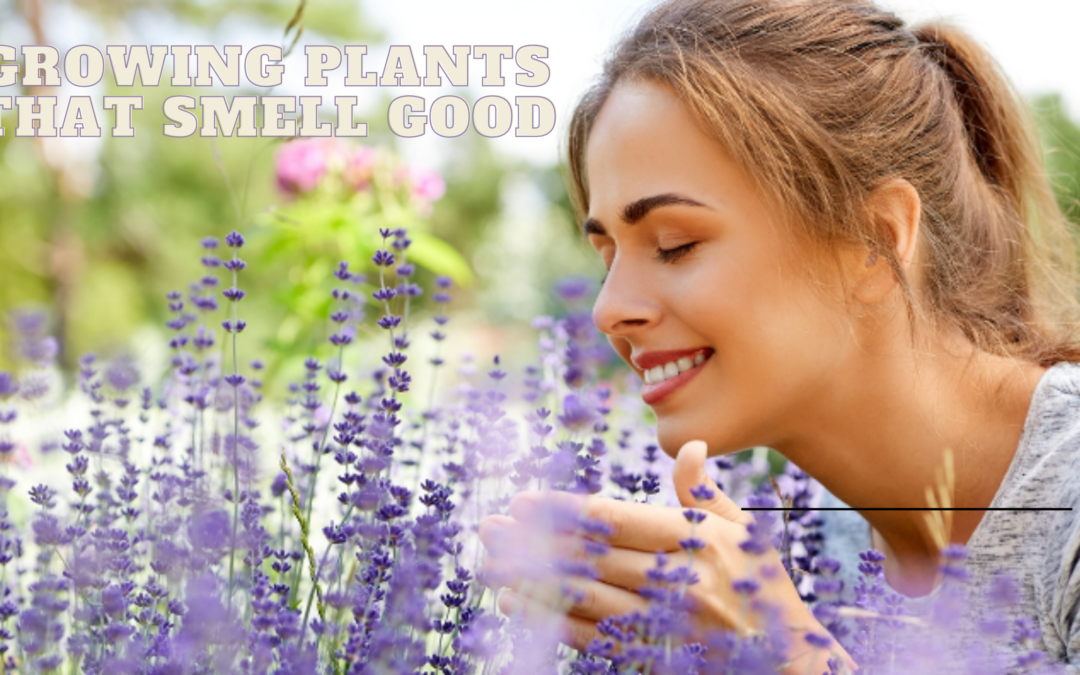The Best-Smelling Plants for Outdoor Gardens
By Lisa Watters-Lain, Arizona’s garden gal
Arizona is famous for its weather, which facilitates myriad outdoor activities. When all this activity brings the party to your deck, patio, or pool’s edge, the fragrance of the garden should be positive and uplifting to the friends who gather. Forget the candles and citronella. This is the perfect place to add sweetly scented plants for ambiance. The right plants remind us of why the mountains of Arizona are meant to be enjoyed outdoors.
The fragrance of many plants intensifies at night for yet another reason to relax under the stars.
What’s the first thing we do when we see a flower? Most of us smell it, of course. Children primarily identify the sight of a blossom with fragrance. While we can occasionally be surprised, disappointed, or repulsed by a plant’s odor, its scent is essential to gardens. Using fragrant plants in the landscape is a concept that has been introduced previously. The botanical reason for plant fragrance is simple. Smells attract pollinators to the flowers. And humans identify hundreds of odors. Many trigger solid reactions and emotions.
White or pastel blossoms seem to have more potent scents, probably to help them compete with their more brightly colored cousins.
A plant’s fragrance is not limited to flowers. Heavenly aromas are found in other parts of its foliage, seeds, and bark. Herbs are perfect examples.
Remember, our prevailing southwest mountain wind directs the aroma. You want to place fragrant plants where they can be appreciated. The viburnum by the front entrance to your home invites guests to take a moment to stop and smell the flowers.
Best Planting Locations
Containers Gardens on Rolling Caddies
Create your portable plant aromatherapy using rolling plant caddies under your containers. Move them where you want.
Near Windows
The fragrance of plants enhances any window that allows a breeze to enter your home.
On Porches, Patios and Decks
Anywhere you have seating is a great place to enjoy fragrant plants, especially evening-blooming plants like jasmine and moonflower. A solitary bench in the garden is an excellent place to escape.
Climbing a Trellis to Climb
Bring the fragrance up to nose level. Arbors, especially over garden gates and pergolas, bring the aroma to you.
In Walkways and Entries
Passersby enjoy the aroma of blooms. Scented leaves release their perfume when brushed as you walk by.
Many of today’s prettiest new hybrids have stunning colors, but the fragrance has been bred out. Some newly introduced roses have a scant scent compared to their original cousins.
There are still plenty of fragrant plants to choose from. Heirloom or “old-fashioned” varieties tend to be the most fragrant. Many plant tags indicate whether aroma is one of the plant’s traits.
Here is a list of the best plants for easy fragrance throughout your gardens.
Annual Flowers bloom in riotous waves of fragrant colors. The best flowers are alyssum, marigold, nasturtium, pansy, petunia, poppy, primrose, stock, and viola.
Evergreens are famous in the mountains of Arizona for their pitchy pine scent. Many have incredible flowers with a fragrance that outdoes most. Evergreens with aromas are azalea, cypress, deador cedar, desert broom, holly, euonymus, juniper, lavender, pine, rosemary, silver berry, Spanish broom, and wax leaf privet.
Herbs are often fragrant, notably sage and rosemary. Creeping thyme is used as a ground cover in steppingstone walkways simply because it smells good when stepped on. Almost the entire family of herbs are fragrant: basil, bay, catmint, chamomile, lavender, mint, oregano, scented geranium, and thyme.
Perennials at the top of the fragrant list include astilbe, candytuft, daylily, dianthus, hosta, iris, lilies, lily-of-the-valley, peony, phlox, primrose, Russian sage, sedum, sweet Woodruff, and verbena.
Shrubs are more fragrant for one reason only: their size. The most fragrant of all: butterfly bush, cotoneaster, daphne, forsythia, gardenia, lilac, manzanita, mock orange, osmanthus, roses, viburnum, big sage bush, and silverberry.
Trees come in all scents and flavors. The most notable local trees for uplifting aromas are crabapple, flowering cherry, crape myrtle, catalpa, fruit trees, serviceberry, pine, and spruce.
Vines are ideal for climbing up arches, pergolas, fences, and deck posts for a fragrance that reaches any location. Have them climb or spread out as a ground cover. Here are the top picks: akebia, clematis, climbing roses, honeysuckle, jasmine, Lady Banks rose, sweet pea and Wisteria.
Until next month, I’ll be helping gardeners grow more fragrant gardens here at Watters Garden Center.
Lisa Watters-Lain can be found throughout the week at Watters Garden Center, 1815 Iron Springs Rd. in Prescott, or contacted through her website at WattersGardenCenter.com or Top10Plants.com.

